Be your own boss -- it sounds great in principle. Illusions of power and setting your own schedule, perhaps also of wealth far beyond what you could earn working for someone else.
That lure of entrepreneurship has snared a majority of Americans, according to a recent CNN/USA Today/Gallup survey*. The poll finds that this aspiration is neither political nor religious, nor related to education or current income. It's primarily a youthful dream, held more by men than women.
About two-thirds of all Americans are employed either full or part time these days (including some who are technically "retired"). Ten percent of all adults are self-employed, including just 4% who own their own business and have employees working for them. But the poll, conducted March 18-20, finds that if given a choice of starting their own business or working for someone else, 57% of Americans would opt for the former, while 40% would choose to work for someone else. Among people who are actually employed, the margin in favor of being their own boss is even greater -- 61% to 38%.
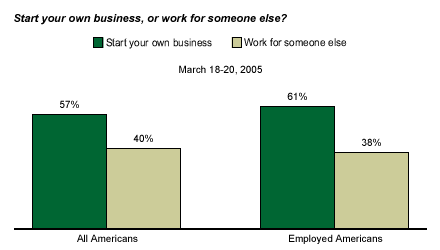
This preference is especially characteristic of young people. By a margin of 72% to 27%, they would prefer start their own business rather than work for someone else. The proportions shift with increasing age, so that among people 65 and older, more would rather work for someone else (49%) than be their own boss (40%).
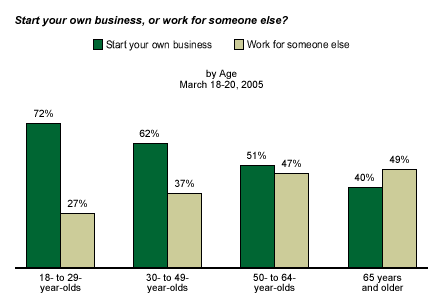
Men prefer the option of starting their own business by almost a 2-to-1 margin, 63% to 34%. Women barely lean in that direction, 50% to 46%.
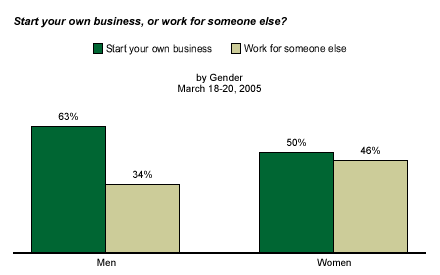
The gender gap persists across age categories. Among adults under age 50, men are 14 percentage points more likely than women to choose being their own boss, 72% vs. 58%. Among people 50 and older, there is an 11-point gender gap in that choice -- 52% of men compared with 41% of women.
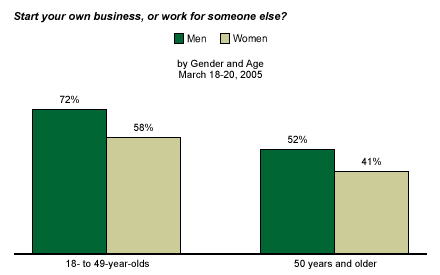
While views on this issue are not significantly related to income or education, nor to partisan views such as party or ideology, there is a large racial gap. Whites are about evenly divided on the matter, 51% to 46% in favor of starting their own business; nonwhites want that opportunity by an almost 4-to-1 ratio, 76% to 20%.
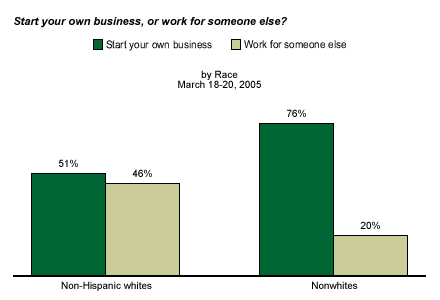
*Results in the current survey are based on telephone interviews with 1,001 national adults, aged 18 and older, conducted March 18-20, 2005. For results based on the total sample of national adults, one can say with 95% confidence that the margin of sampling error is ±3 percentage points.
In addition to sampling error, question wording and practical difficulties in conducting surveys can introduce error or bias into the findings of public opinion polls.

